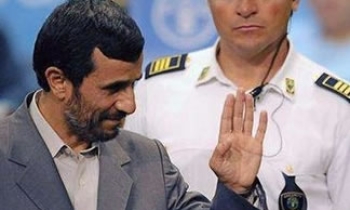Civil society groups in more than 60 countries celebrated the International Right to Know Day on September 28. Documentation of the past year's achievements of the right to access government information in various countries were released by ARTICLE 19, Privacy International, and the Open Society Justice Initiative.
"Although the global movement suffered setbacks in 2007, the bottomline is that there have been net gains, especially in China, Latin America, and West Africa," the Open Society Justice Initiative said.
One of the most important international developments in the past year was the landmark ruling of the Inter-American Court of Human Rights in the Claude Reyes v Chile case that declared freedom of information (FOI) is a fundamental human right. "This will have a profound effect on countries in the region and sets an important precedent for the rest of the world," asserted ARTICLE 19. "FOI is now recognised as an important tool to promote democracy and fight corruption by the UN, Council of Europe, Organization of American States, League of Arab States, and the African Union."
Over the past year, new laws were approved in Honduras, Jordan, Kyrgyzstan, Nepal, Nicaragua, and most recently the Cayman Islands. Norway adopted an even more open law while the US is currently making the first major improvement to its law in a decade. Amendments to weaken FOI laws were rejected in the UK and Bulgaria.
The scene, however, was very different a year back when Privacy International released the ‘Freedom of Information Around the World 2006: Global Survey of Access to Government Information Laws’ on September 20, 2006 which highlighted many problems that still existed such as poorly drafted laws, lax implementation and an ongoing culture of secrecy in many countries.
There were also dangers in backsliding such as in Ireland where the imposition of onerous fees had significantly reduced use of the law and in the United Kingdom where a similar proposal was being considered. New laws promoting secrecy in the global war on terror had also undercut access.
Even today, FOI is struggling in many countries to see the light of the day. African coutries are a significant example. Nigeria's Freedom of Information Bill's enactment into law has been in the works for more than eight years. The bill would allow journalists and citizens to access government information, and is considered to be the single most important piece of legislation to hold the promise of reducing and eventually beating corruption.
With a new National Assembly and the recently elected President Umaru Musa Yar'Adua, the FOI bill has got a new forward momentum. The Freedom of Information Coalition led by Media Rights Agenda (MRA) has launched a petition requesting the bill to be passed into law before the end of this year, and has already collected more than half a million signatures. MRA is a member of the International Freedom of Expression eXchange (IFEX).
In Kenya too, the FOI bill is pending in parliament. The governments of Ghana and Tanzania are currently considering drafts of government sponsored FOI bills.
The Africa Freedom of Information Centre (AFIC), which will support FOI adoption, implementation, and reform campaigns throughout Africa, was launched in Lagos on the Right to Know Day. The centre was developed by a group of 30 NGOs from 16 countries and is led by a steering committee of six organisations, including MRA and the International Federation of Journalists (IFJ) office in Senegal.
In Asia, China's State Council unveiled the first nationwide Open Government Information Regulations, due to take effect in 2008. According to a top official, the regulations are intended to safeguard "the public's right to know, the right to participate and the right to supervise" and to "help curb corruption at its source."
In Europe, the Council of Europe is continuing to draft what is to become the first multilateral treaty to guarantee a general right of access to publicly held information. Access Info Europe, ARTICLE 19, and the Open Society Justice Initiative, who have observer status on the drafting group, have voiced "serious concerns" that the treaty falls below prevailing standards in Europe. They have collected signatures from more than 180 organisations throughout Europe and elsewhere that call for the flaws to be resolved before the treaty is finalised soon.









